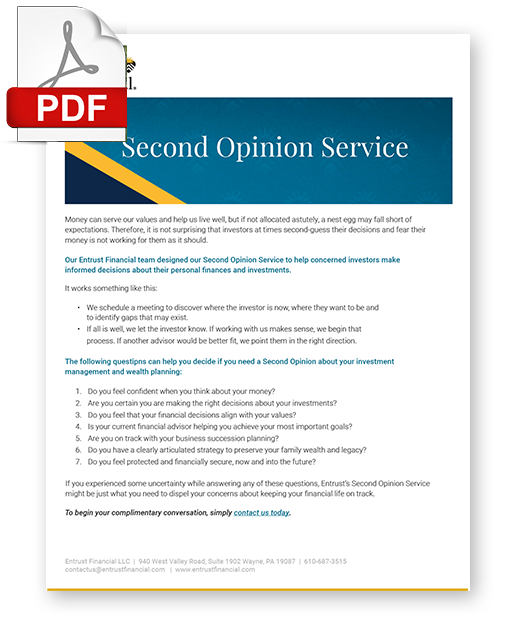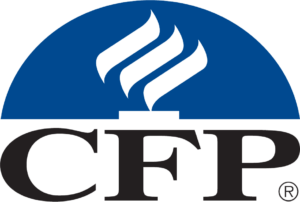Retirement Security in a Pandemic, Part Two: Plan and Prioritize

Part Two of Three
Joslyn G Ewart, CFP® — August 4, 2020

It is not uncommon for considerations of retirement security to begin with a debate about the capital markets: Will they go up or will they go down? This focus—just as you are trying to plan your retirement savings, establish your retirement date, or generate your desired amount of retirement income—can derail you from the actual considerations that lead to retirement security.
The purpose of this series is to introduce the fundamental components of a secure retirement plan, that may keep you on track and serve you now—pandemic notwithstanding. Whether you are a Generation Z, Millennial, Generation X, or Baby boomer, consider these three steps to ensure your retirement security:
1. Lead with savings
2. Plan based upon your values and prioritized goals
3. Invest for the long-term
Our focus today, in article two, is: Plan based upon your values and prioritized goals. As you read the material, I encourage you to consider how it applies to your personal situation. The more specifically you apply the concepts (nothing wrong with using an old fashioned lined tablet and your favorite pen to jot down your details), the more effectively you will be able to assess just how financially secure you are now and how secure you will likely continue to be even when the pandemic becomes history.
Plan based upon your values and prioritized goals.
Your retirement security planning requires self-reflection, beginning with the identification of what is important to you. You probably know what you value most, but have you jotted it down, in writing? To be specific, if I ask you this question, “What’s important about money, to you?”, what three things come to mind? I encourage you to make a note of your answers.
The reason for writing down what matters to you is that as you clarify the purpose money serves in your life, you can then deploy it effectively. Money is a tool, a servant. When you know what you would like it to do for you—its purpose based upon what you value—formulating a plan for retirement security is within reach, regardless of your stage of life or the ever-changing landscape of current events.
I would like to mention some of the values clients share when they answer the “What’s important about money, to you?” question. For example, our advisors often hear answers identifying the purposes that money serves: comfort; security; freedom; maintaining my lifestyle; never running out of money; leaving a legacy. As we segue our discussion to the consideration of goals, I would also like to mention that when I started my career right out of college, I wrote down several things about what I wanted to achieve with my money. What a difference that written intention made twenty years later, when it was time for me to change careers and start my business.
Prioritizing your financial goals
Choosing to take the time to delineate your financial goals and then to prioritize them sets you apart from many. Congratulations! As financial advisors, we have heard all kinds of reasons why this goal setting process is overlooked. A typical one is: “Ah, my goals are in my head. I don’t need to write them down.” Unfortunately, in such cases, the family’s retirement savings are rarely on track and when the unexpected occurs (a pandemic), fear takes over and chances are that the decisions to follow will reduce savings even further.
Fortunately, readers of all generations can plan using strategies that work. Following is a recipe for success that was formulated from years of experience:
• Identify a purpose for money (your values)
• Delineate precise goals (yours)
• Determine timelines for achieving them (prioritizing)
• Establish a plan for retirement security (in writing)
Depending on your stage of life, the prioritization of your specific goals will likely evolve over time. For example, Gen Z’s may have the specific financial goal of advancing their careers to a certain level of economic achievement, while creating the habit of living within their means using a budget that includes the “expenses” of short-term and retirement savings. Millennials will likely have an established emergency fund, be in a routine of steadily increasing their retirement savings and might be whittling away at their home mortgages so that their primary real estate becomes another asset they fully own.
Gen Xers, by comparison, are further along on their retirement savings trajectories and may be stretching their budgets to build in college funding for their children. Most Baby boomers are on the cusp of retirement or are already retired. Their prioritized goals focus on maintaining their preferred styles of living as well as ensuring that future (unknown) health care costs are comfortably covered.
You may recognize some of the foregoing goals as your own. Having plenty of money for travel is a popular goal, too, although right now travel costs are minimal due to the pandemic. In fact, additional funds that you do not need for travel might be re-directed to replenish any budgeting gaps you have, such as building needed emergency funds or establishing a heavy-maintenance fund account for your home.
As suggested at the outset, a fundamental component of preparing for a secure retirement is to plan based upon your values and prioritized goals. Our three-article series has addressed Lead with Savings and Plan Based Upon Your Values and Prioritized Goals. Should you need inspiration to preserve your planning focus during these troubled times, perhaps this quote by Gloria Steinem will help: “Rich people plan for three generations. Poor people plan for Saturday night.”
Stay tuned for an expanded discussion regarding the capital markets and how to secure your retirement portfolio of investments, in article three of our series: Invest for the long-term.












